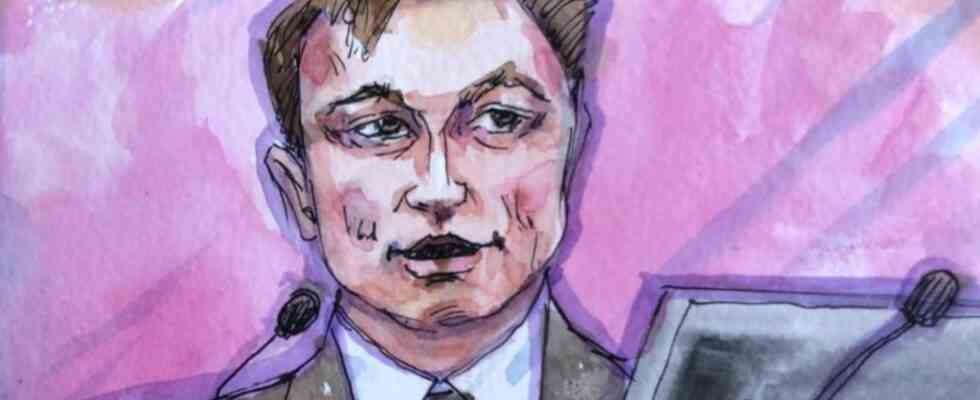Tesla boss
Elon Musk on the witness stand in investor lawsuit
Tesla boss Elon Musk had to testify. photo
© Vicki Behringer/Vicki Behringer/AP/dpa
Tweets from 2018 in which Elon Musk announced plans to take Tesla private have already brought him a lot of trouble. Now, more than four years later, they’re putting him on the witness stand.
In the process of fraud allegations by investors against Tesla boss Elon Musk, the tech billionaire himself was called to the witness stand. However, not much came of it at first: About half an hour after Musk’s questioning by the plaintiff’s lawyer began on Friday, the court adjourned until Monday.
The case relates to Musk’s August 2018 tweet rushing to announce that he intends to take the electric car company public and has secured funding to do so. Later it turned out that there were no firm commitments from investors. Investors are basing their class action lawsuit against Musk and Tesla’s board of directors on this. The false tweets triggered price swings that caused them to lose money, they argue.
The short time on the witness stand Friday allowed some glimpses of Musk’s line of defense. He insisted that the 240-character length of the Twitter messages did not allow for detailed explanations. His lawyer had already said in the opening speech that the phrase “financing secured” was only due to an unfortunate choice of words under time pressure, while Musk meant something else. The lawyer for the plaintiffs reminded the Tesla boss in the survey that he also had to provide correct information about his company on Twitter.
Only harmless tweets?
At the same time, Musk tried to question the general impact of his tweets on investors. “Just because I tweet something doesn’t mean people will believe it or act on it,” he said. He once wrote on Twitter that he thought Tesla shares were too expensive – and the price continued to rise afterwards, Musk said. In fact, on the day in May 2020 following Musk’s tweet, the stock had initially fallen over 10 percent before later bouncing back.
The plaintiff’s attorney also pointed out that in July 2018, Musk’s confidants recommended that he tweet less or not at all. The 51-year-old initially said he couldn’t remember. But after he read statements from the confidants “to refresh the memory”, he did not deny it. He obviously didn’t comply, Musk said.
Judge Edward Chen found in the proceedings last year that Musk’s statements in the tweets were not true. While the jury is made aware of this at trial, it is expected to evaluate whether those statements were relevant to investors – and harmed them by relying on them. They also need to determine whether Musk was aware that he was making false statements.
The tweets had already caused serious trouble for Musk and Tesla. The 51-year-old and the company each paid fines of $20 million for misleading investors, according to the SEC’s investigation. In addition, Musk had to give up the chairmanship of the board of directors and undertake to have Tesla approve potentially price-sensitive tweets.

